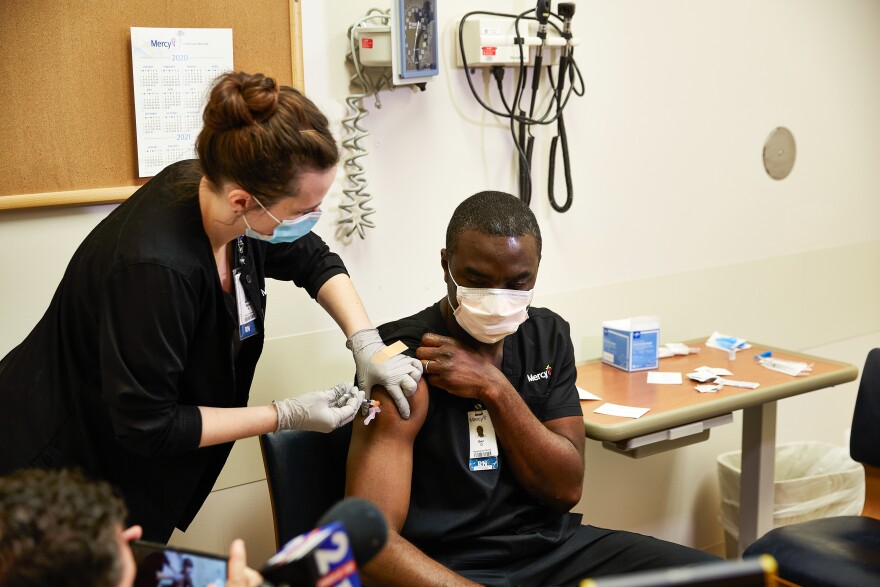As coronavirus cases rise and more contagious variants take hold in Missouri, the four largest hospital systems in St. Louis are requiring all their workers to receive the COVID-19 vaccine by fall.
Deadlines vary among the hospitals, but employees at St. Luke’s, SSM Health, BJC HealthCare and Mercy Health will need to be vaccinated by late September.
More than 100 million people in the United States have received the vaccine, according to the Centers for Disease Control and Prevention, and it’s been proven to be safe and effective.
“I think it’s our duty to provide the safest work environment both for our coworkers and our patients, but also be part of the effort to stop the spread of the virus for all the communities we serve,” said Dr. John Mohart, chief clinical officer at Chesterfield-based Mercy Health.
Unvaccinated health workers are more at risk of catching the virus, he said.
“I do think as health care providers we should set the standard for the health and wellness of our community,” he said. “When you see multiple patients in a day, whether you’re a nurse or physician, you’re at risk for spreading that virus.”
Health care workers were the first group of people in the state to become eligible for the vaccine late last year. But seven months later, there are still many holdouts.
At Mercy Health, about one-third of employees have not yet been vaccinated, Mohart said.
Nearly a quarter of BJC workers have not received the vaccine, hospital officials said.
Officials from St. Luke’s, BJC HealthCare, SSM Health and Mercy Health said they want all hospital workers to be protected before the fall, when respiratory viruses spread more quickly, said Dr. Clay Dunagan, chief clinical officer at St. Louis-based BJC.
Setting a deadline now gives employees a few months to get questions answered and become used to the idea of getting the shot, said Dunagan, an infectious disease specialist at Washington University.
“There’s a lot of focus on the issue of personal liberty and whether anyone has a right to tell someone what to put in their bodies, and I get that argument,” he said. “But the fact is people who are unvaccinated have a risk of dying from COVID, they have a very high risk of getting COVID. … Maybe most importantly, the person who doesn’t get vaccinated is potentially a person who could infect someone.”
It’s likely some employees will quit before they receive the shot, Dunagan said, which happened when the health system began requiring employees to receive the influenza vaccine.
“We will almost certainly have employees that just don’t believe vaccination is in their future and will in the final moment decide they’re going to seek employment elsewhere,” he said.
Some health workers are wary of getting the vaccine before the federal government fully approves it, Dunagan said, but he expects the FDA to do so soon.
At least 20 hospital systems around the country have announced COVID vaccination requirements for employees, Mercy officials said. In some cases, employees have challenged the requirement in court.
Judges have thrown out those legal challenges, Dunagan said.
Follow Sarah on Twitter: @petit_smudge




